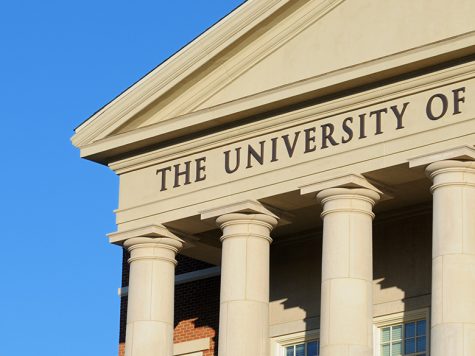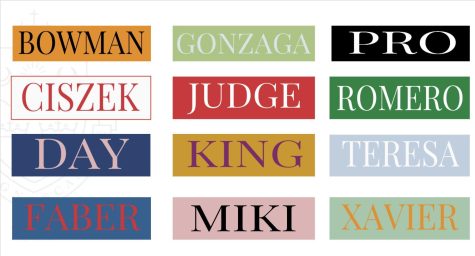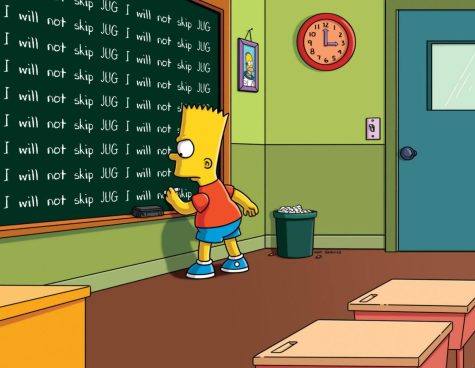Is a BC High Education Ignatian?
December 5, 2019
Boston College High School is a disproportionate presence in many of our lives. Most high schools ask their students for eight hours each day: classes, homework, and studying, maybe some extracurricular activities if there’s time. B.C. High, on the other hand, demands between 12 (if you don’t play a sport) and 16 (if you do). For most of us, those extra hours are the result of a commute, a demanding AP-centered curriculum, service commitments, or some combination thereof. Competitive sports add on hours of practice, weeknight games or competitions, and physical exhaustion. We do a lot, and the sacrifices we make do not go unlauded. Most talks we receive begin with some version of “We know you guys do a lot, you get up at 5 in the morning…and do it all over again, BUT”. Our efforts do not go unnoticed by colleges and universities either; the year I matriculated to Arrupe, nine students from the graduating class were attending Harvard. B.C. High alumni are successful, ostensibly happy individuals. The question I want to address in broad strokes is whether or not B.C. High has actually lived up to the rigorous philosophical standards it espouses. In other words, is a B.C. High education Ignatian?
In short, yes- for the most part. To evaluate the “Jesuit-ness” of B.C. High’s educational philosophy, I read the blueprint for every Jesuit institution that has ever been chartered: Ratio Studiorum, published by a team of Jesuit academics at the Collegio Romano in 1599. Well, read is a strong word. I skimmed it. It was very long, quite frankly boring, and what I skimmed did not appear helpful. Ratio, (the Rat, as Mr. McHugh calls it) isn’t so much a grandiose meditation on Jesuit pedagogy as it is an administrative handbook. The Jesuits are marvelous administrators; Ratio contains everything from which scripture to teach to when (and by whom) oral exams are to be conducted. I was then left at an impasse, and as I am so fond of doing at impasses, I simply made something up. For the purposes of this article, I’ll be extrapolating the notion of an “Ignatian” education from our espoused values (the Grad at Grad), boilerplate stuff like cura personalis, and the general vibe I’ve gotten from my religion classes during my time here.
To begin, Catholic schools as a whole were supposed to be different. Aside from simply integrating the faith into an otherwise secular course load, they were supposed to be a microcosm of God’s kingdom on earth. Change made manifest. It’s a lofty standard, but one we have committed ourselves to. And, for the most part, B.C. High meets that standard by offering opportunities you would only find in a Heavenly academy. Retreat offerings to develop your spirit. Service requirements to learn and practice empathy. Graduates who are generally good people. All of these suggest a job well done and a countercultural nature. We do a lot of things that other schools don’t, but that philosophy doesn’t extend as well as it could into our education, which is the essential task of the school. In a lot of ways, we’re markedly similar to other elite private high schools.
B.C. High bought into APs. Hard. We offer them in an ungodly number of subjects, and yet they’re antithetical to a Jesuit sense of intellectualism. The Jesuits saw no subject as unworthy; they studied natural science during an era of Church skepticism because they believed in a syncretic vision of the universe, a vision that saw God and science as not only compatible, but uniquely intertwined, with one giving rise to the other. The Jesuits produced some of the greatest scientists of their time. None of these scientists studied for A.P. exams. They didn’t believe in modulated knowledge, in a corporate system that provides standardization but robs students of the basic joys in intellectual exploration. The College Board is not, as we say, “Open to Growth.” B.C. High is complicit in this too; despite the incredible breadth and depth of our electives, any student with above a 4.0 (which, believe it or not, is a fair percentage of the class) is punished for taking them because it lowers their GPA. B.C. High not only incentivizes otherwise, but actively punishes students who don’t partake in a corporate system whose shortcomings are well-documented (see the Dartmouth 2013 study, in which 95% of students who got a 5 on the A.P. psych exam failed Dartmouth’s freshman psych final; one might say the College Board was not “Intellectually Competent” in its designing of the system). And yet perhaps the most pernicious aspect of A.P. classes is that they take away time. The work takes time, the studying takes time, taking multiple A.P. classes at once sure as hell takes away your time. Not just time to do extracurricular actives that pad your resume, time to socialize, spend with family, but also time to just be idle and (for the love of God) do absolutely nothing. My course load is a little lighter this year, and as a consequence, I can actually talk to my mother at night. Often for a full 30 minutes. During my junior and sophomore year, that was not a possibility (one might say I was over-scheduled). And it wasn’t so much that I didn’t have the time (technically speaking, I did), but rather that I felt guilty. I felt like I was wasting time, and in a sense, I was. I could have been studying. I could have been working on physics homework. I could have been working on my resume, learning Arabic, or figuring out what an oboe is. There was nothing wrong with how I was spending my time, and yet I believed (and our school culture perpetuates this) that I wasn’t doing enough. To pivot into the idea that an Ignatian education should not just care for, but educate the whole person, I didn’t have the time to be Loving. To be authentically Religious. Good religious experiences aren’t two minutes of prayer in the morning and an extra five minutes on Wednesday – they are the result of time to reflect, to pray or meditate deeply, to feel God shifting at the bottom of your soul. I don’t know about you, but I can’t get there in two minutes. I’d imagine most people can’t. And that’s a problem for a school where one-fifth of its mission is creating people who are Religious. Similarly, a Commitment to Doing Justice involves time. How do we expect our students to go out into their community and be authentic change makers when we budget their time so frugally? How can we form connections with homework and sports and extracurriculars we choose (but didn’t really choose) looming?
When I asked my mom why she wanted me to apply to B.C. High, she said “because those Jesuits can teach.” I have never been taught by a Jesuit, but the idea behind Jesuit pedagogy is a humanist one – the idea that connections between students and faculty is essential to scholarly and personal progress. Now that most teachers teach five classes, cultivating that personal connection has become much more difficult.
I gave tours at both Open Houses a few weeks ago. The fact that we’re Jesuit matters to us. It’s our key talking point, some might say our only talking point that makes us different from a Milton Academy or Boston Latin. So why, then, are we abandoning the model that was set for us? Will our commitment to Ignatius deepen in the coming years, or will he remain a statue in front of M1?








